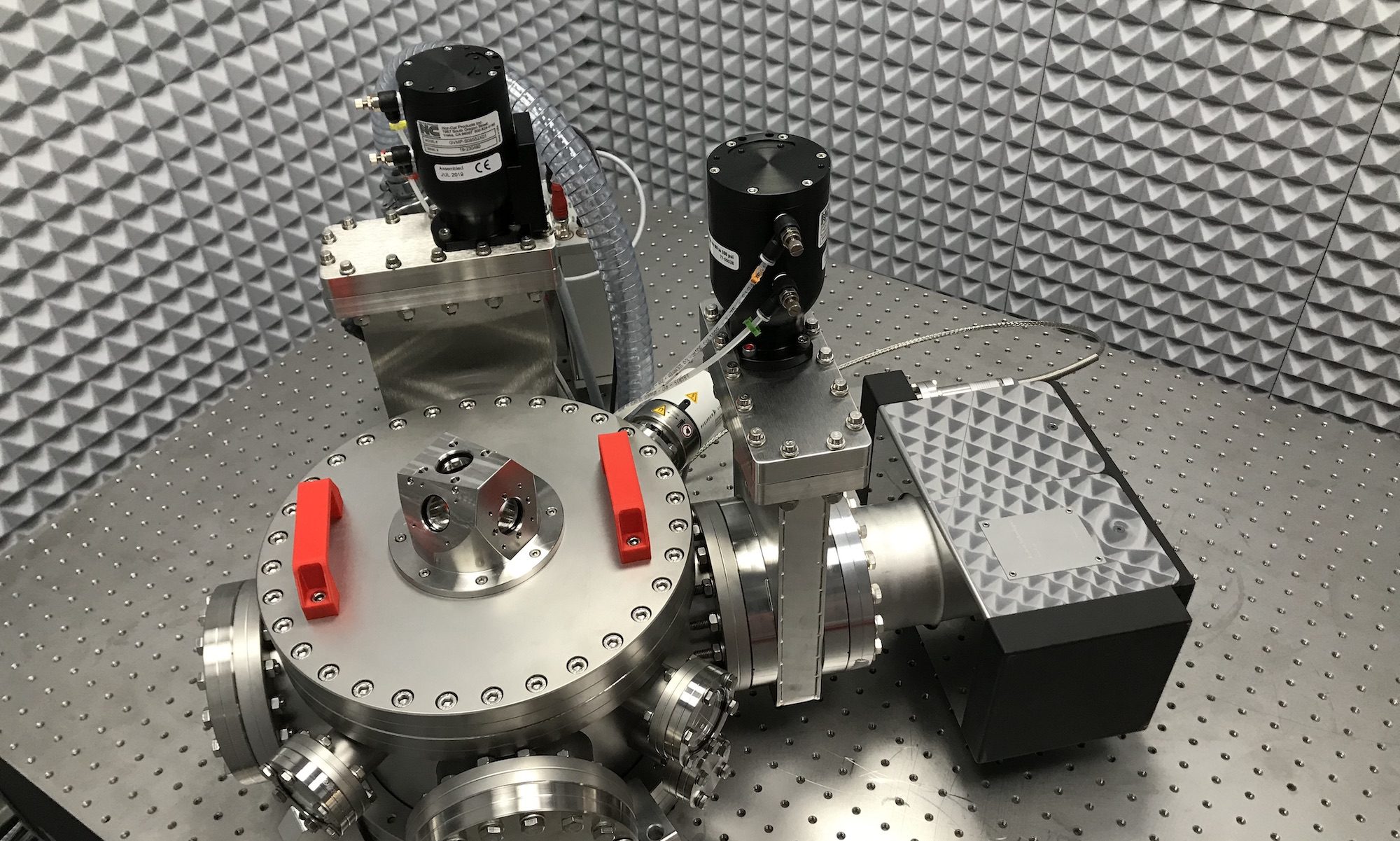Justine Laurent, Audrey Steinberger and Ludovic Bellon, Nanotechnology 24, 225504 (2013)
doi: 10.1088/0957-4484/24/22/225504
The functionalization of an atomic force microscope (AFM) cantilever with a colloidal bead is a widely used technique when the geometry between the probe and the sample must be controlled, particularly in force spectroscopy. But some questions remain: how does a bead glued at the end of a cantilever influence its mechanical response? And more importantly for quantitative measurements, can we still determine the stiffness of the AFM probe with traditional techniques? In this paper, the influence of the colloidal mass loading on the eigenmode shape and resonant frequency is investigated by measuring the thermal noise on rectangular AFM microcantilevers with and without beads attached at their extremities. The experiments are performed with a home-made ultra-sensitive AFM, based on differential interferometry. The focused beam from the interferometer probes the cantilever at different positions and the spatial shapes of the modes are determined up to the fifth resonance, without external excitation. The results clearly demonstrate that the first eigenmode is almost unchanged by mass loading. However the oscillation behavior of higher resonances presents a marked difference: with a particle glued at its extremity, the nodes of the modes are displaced towards the free end of the cantilever. These results are compared to an analytical model taking into account the mass and inertial moment of the load in an Euler–Bernoulli framework, where the normalization of the eigenmodes is explicitly worked out in order to allow a quantitative prediction of the thermal noise amplitude of each mode. A good agreement between the experimental results and the analytical model is demonstrated, allowing a clean calibration of the probe stiffness.

